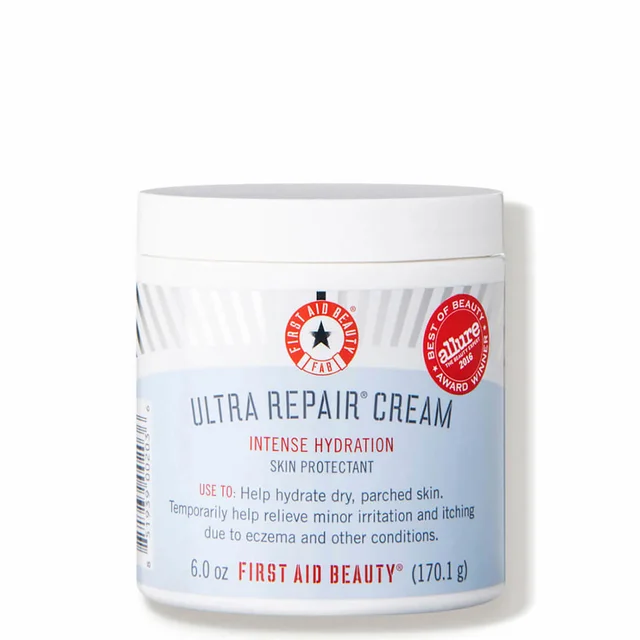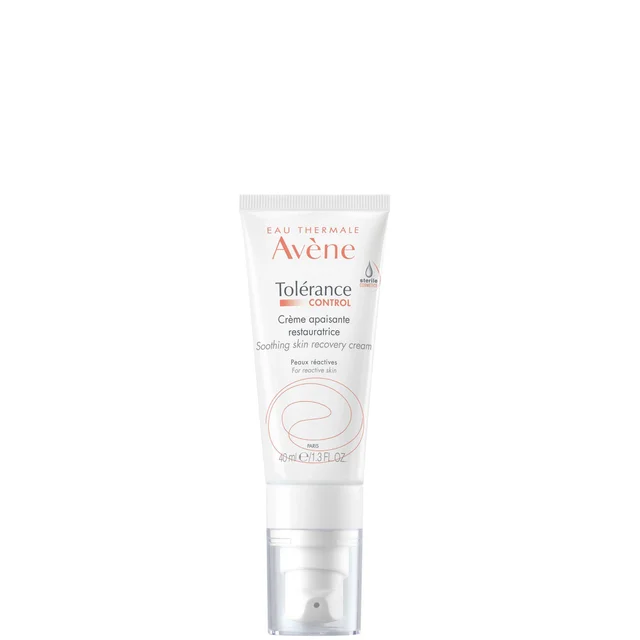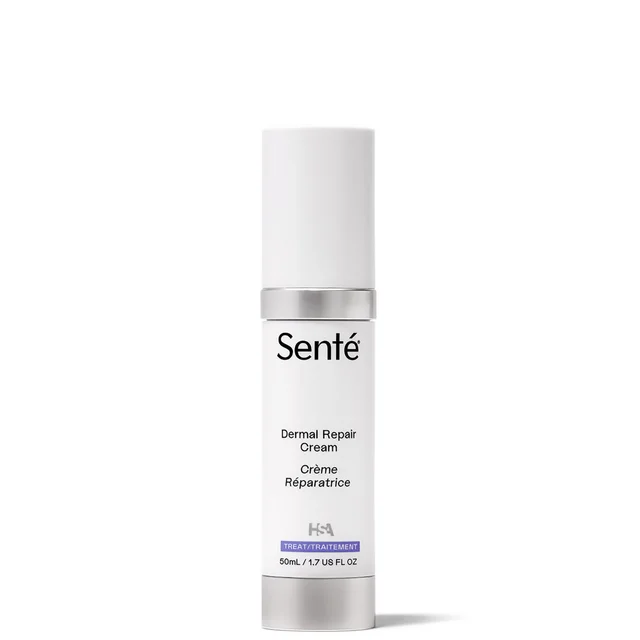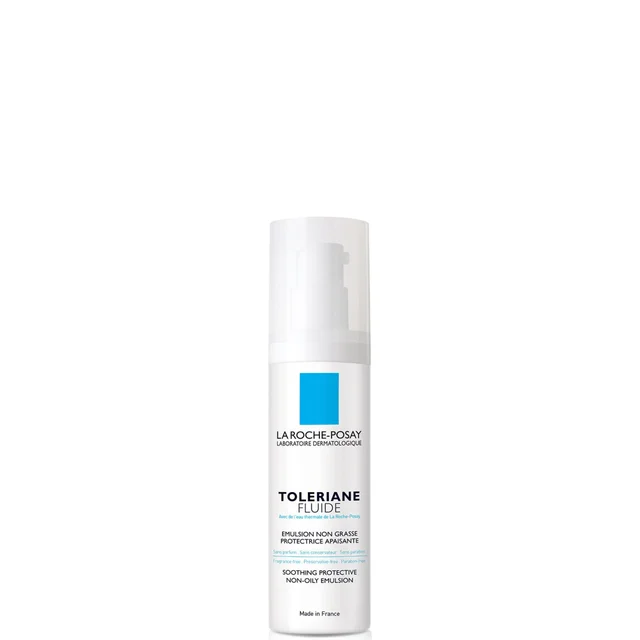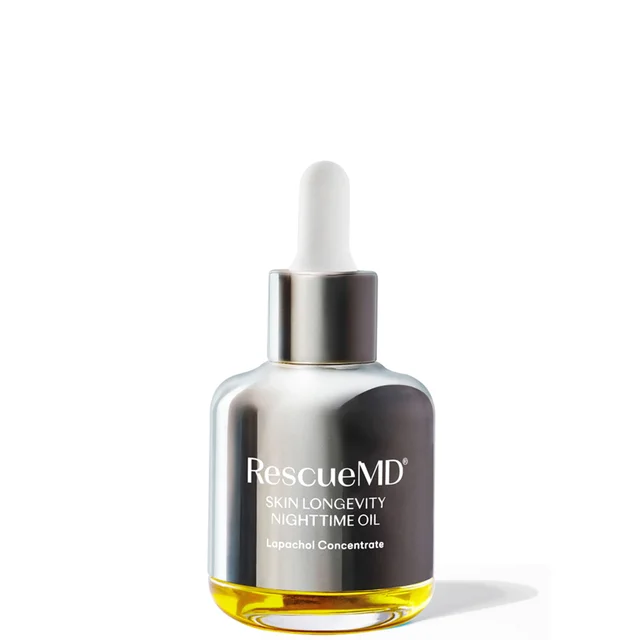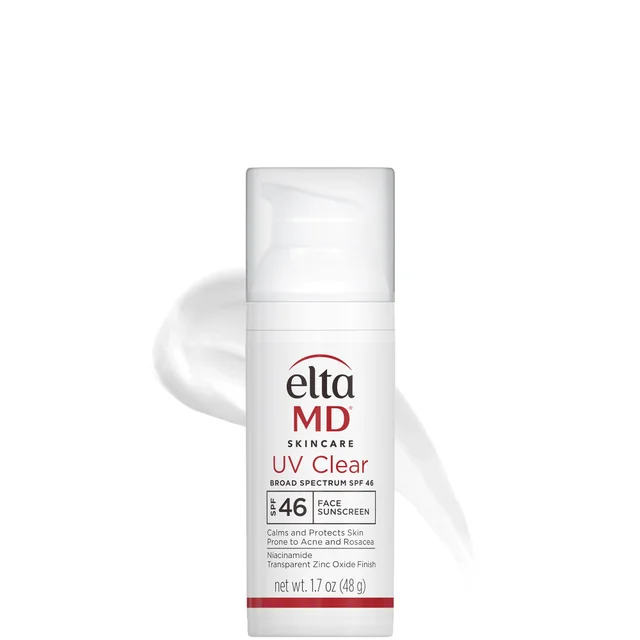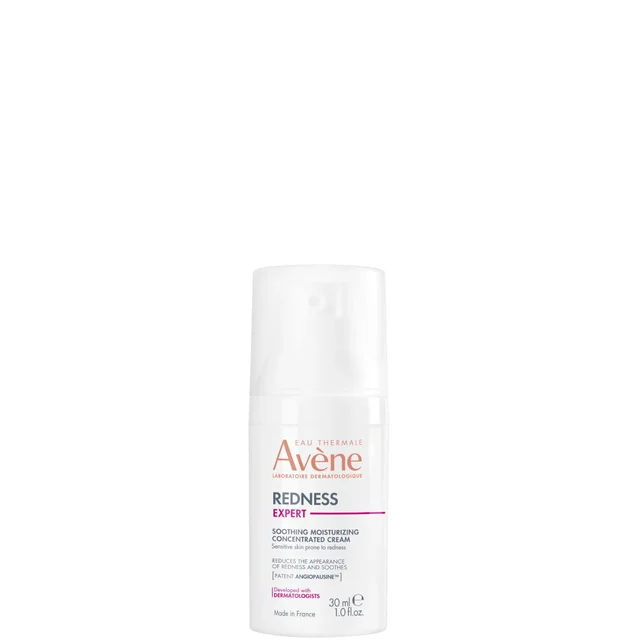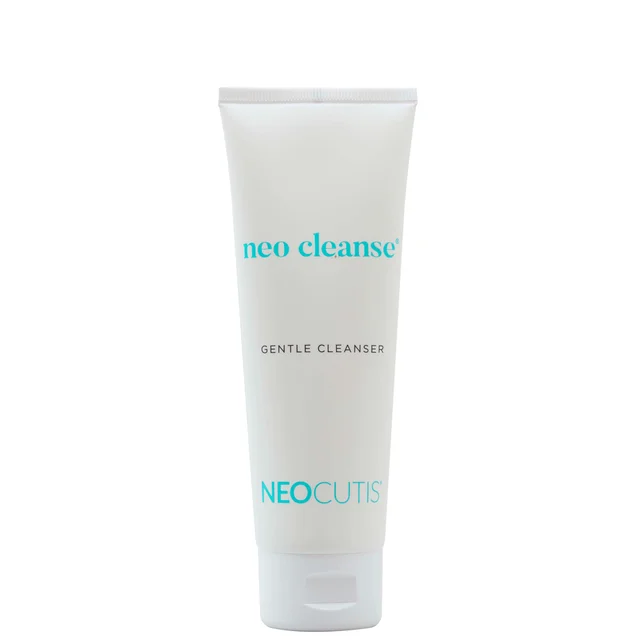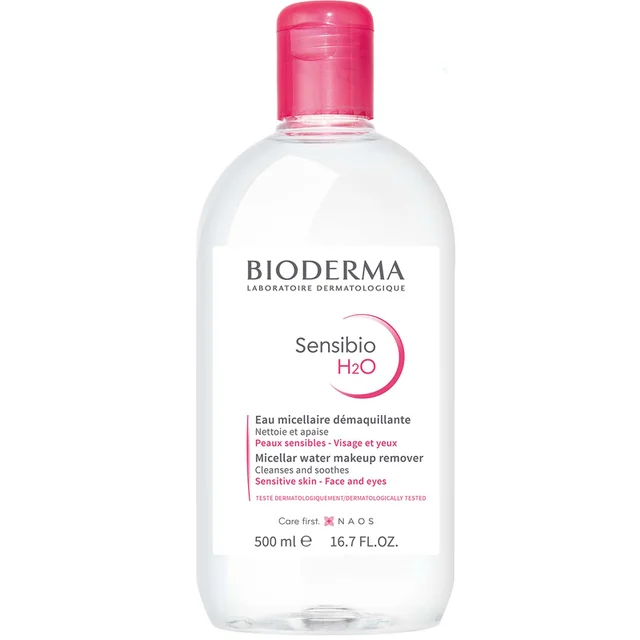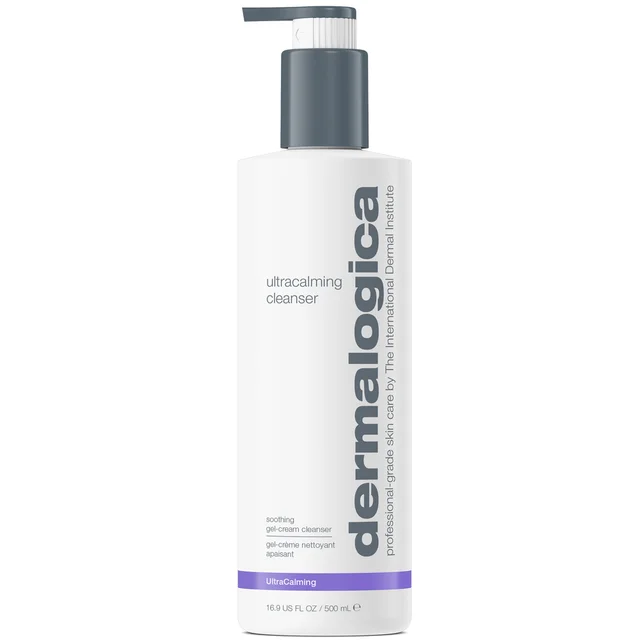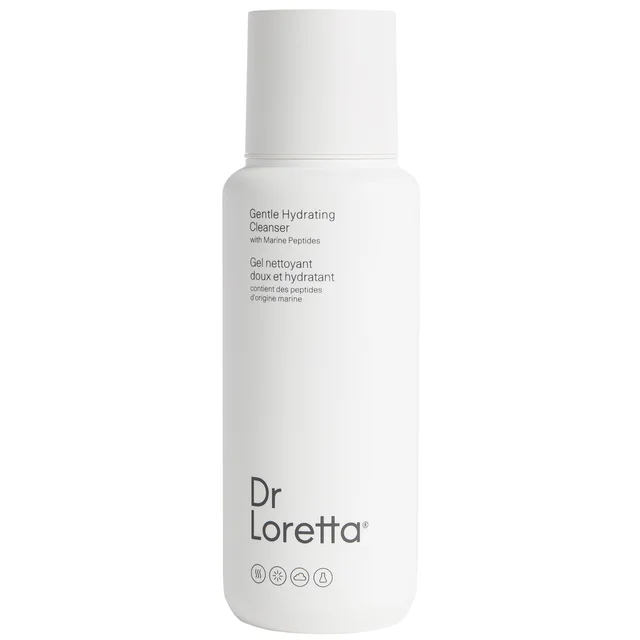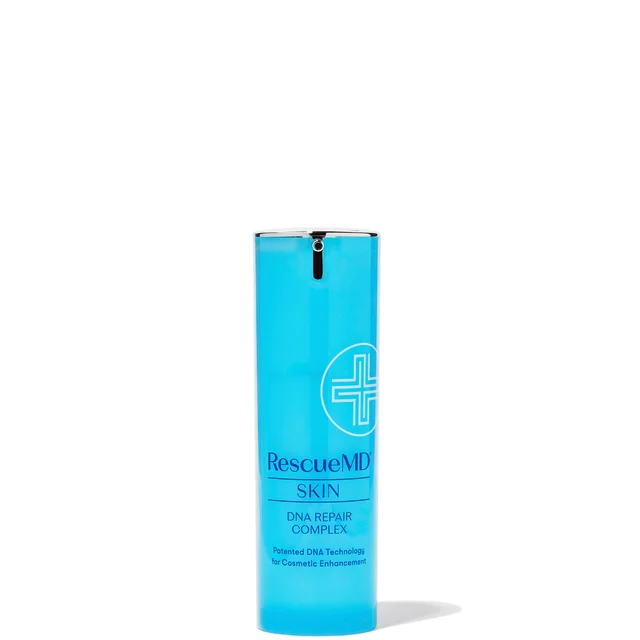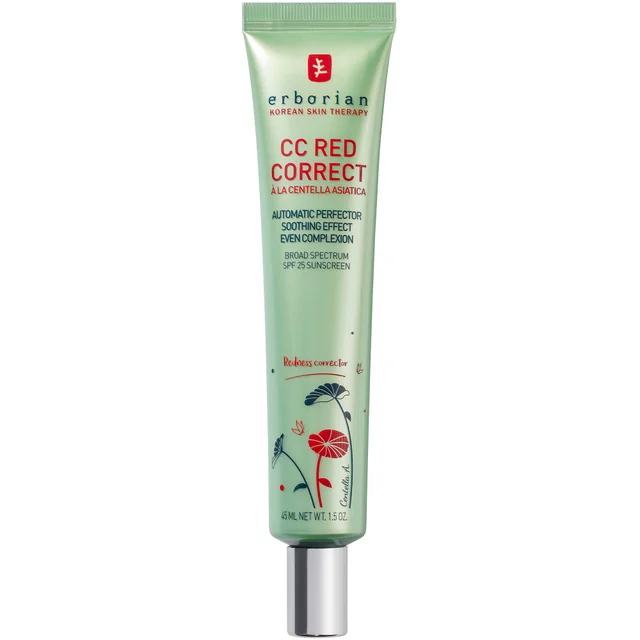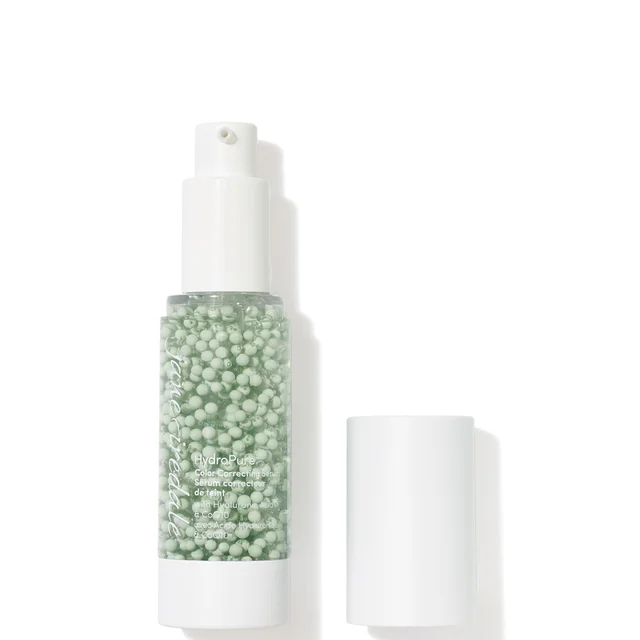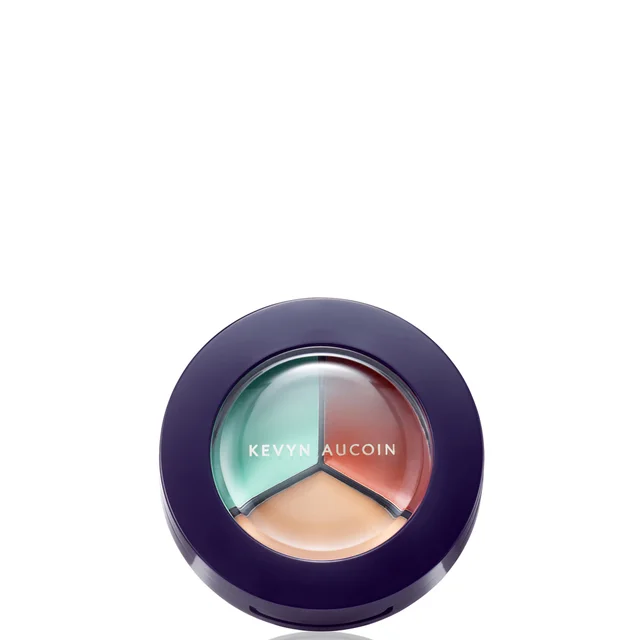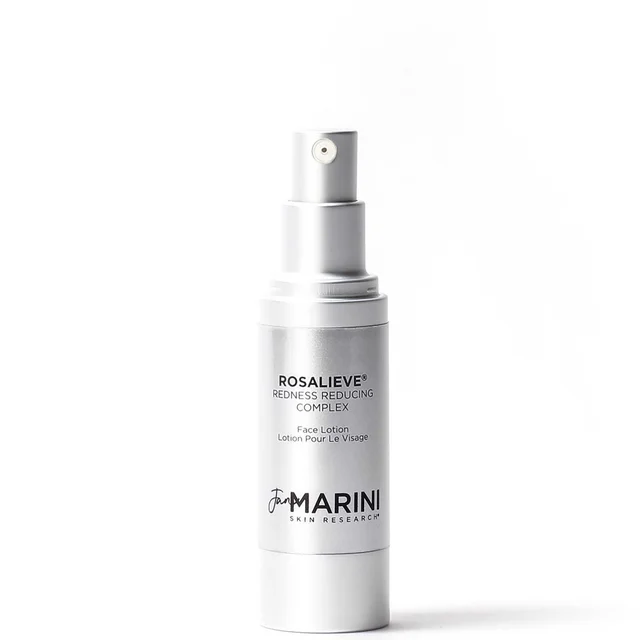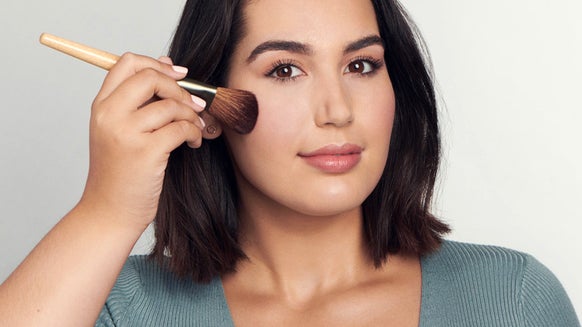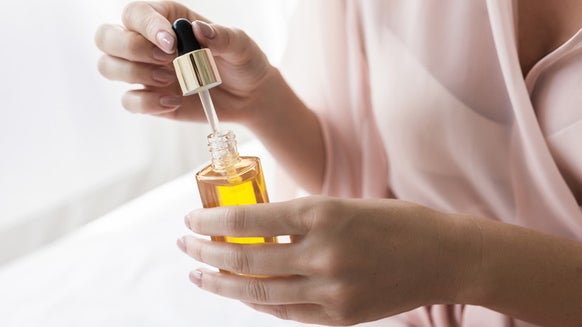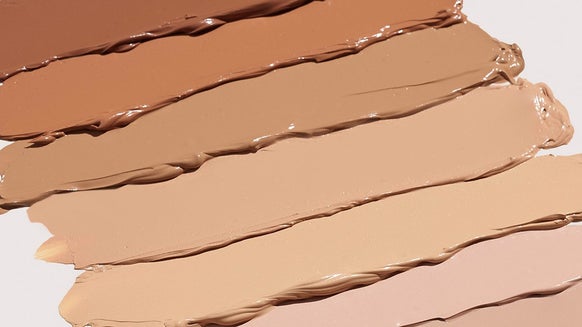Best Skin Care for Rosacea: 20 Derm-Approved Products for Fewer Flare-Ups
Rosacea is more common than you think, affecting more than 14 million American adults. Categorized as red, flushed skin with small pimple-like bumps, rosacea's physical and emotional effects may have more of an impact on some than others. Whether your rosacea flare-ups are mild or more severe, what you use on your skin and how you care for it is key to getting your skin healthy again, with a more even skin tone and less redness and texture. Even though the skin condition can be somewhat debilitating for some, taking a proactive approach to skincare and using the best rosacea products while adhering to specific lifestyle habits is the best plan of attack to control it effectively.
Meet the Expert
- Dr. Ashley Magovern - Board-certified dermatologist and member of Dermstore's Medical Advisory Board
What is Rosacea?
Rosacea is a common, chronic yet controllable skin condition that causes the skin on the central part of the face to become flush and red. Board-certified dermatologist Ashley Magovern, M.D., member of Dermstore's Medical Advisory Board, explains that rosacea typically shows up as persistent redness, flushing, visible blood vessels, and sometimes acne-like bumps. "It tends to come and go in flares, often triggered by things like sun exposure, stress, spicy foods, alcohol, or extreme temperatures. While rosacea looks different for everyone, the underlying thread is inflammation—and calming that inflammation, both topically and internally, is key to long-term management." While rosacea is more common amongst sensitive skin types and lighter skin tones, it can affect any skin type and tone and can flare at any time.
The most common rosacea triggers include:
- Heat
- Cold
- Wind
- Hot or spicy foods
- Sun exposure
- Alcohol
- Stress
- Some beauty products
- Certain medications
- Sweat and exercise
What Does a Dermatologist Recommend for Rosacea?
Rosacea is a complicated and not fully understood skin condition, yet it is known that a mix of genetics, inflammation, vascular reactivity, and immune dysregulation causes rosacea flare-ups. Dr. Magovern says that triggers like sun, stress, heat, and certain foods can all contribute to flares, so it's crucial to avoid the ones that can cause a bout of rosacea. "There's also increasing evidence that the skin microbiome plays a major role—many people with rosacea have an imbalance in the skin's natural microbial community, including higher levels of Demodex mites, which can further provoke inflammation. From an integrative dermatology perspective, I always like to consider what's happening beneath the surface."
Rosacea often reflects internal imbalances, particularly in the gut, and Dr. Magovern shares that gut health, SIBO, food sensitivities, hormonal shifts, and toxin exposure can all contribute to ongoing inflammation. "I sometimes recommend testing or targeted support in these areas when rosacea is persistent or severe. Lifestyle adjustments, anti-inflammatory nutrition, and gentle detox support can make a noticeable difference in skin health." Equally as important is a consistent and gentle skincare routine. "It lays the foundation for calming inflammation, protecting the skin barrier, and supporting a healthier skin microbiome. Combining high-quality topical care with an inside-out approach is often the most effective—and empowering—way to manage rosacea in the long run."
At the end of the day, the best dermatologist-recommended treatment is the one that works best for your skin to keep it calm, hydrated, and soothed. Keep in mind that works for one person with rosacea may not be the best for another, which is why a personalized approach is always best.
Key Ingredients to Look for in Rosacea Products
Not every case of rosacea responds the same, so a trial-and-error approach is often recommended until you find the right combination of skincare ingredients and products, medications, and lifestyle habit changes that work for you. "The goal, with rosacea-prone skin, is to reduce inflammation, strengthen the barrier, and minimize redness," Dr. Magovern says. "Ingredients like niacinamide, azelaic acid, and ceramides are some of my top picks for calming and protecting the skin." She also likes green tea extract, licorice root, and feverfew, which offer gentle antioxidant and anti-inflammatory support. "These ingredients help soothe the skin while supporting a healthier skin microbiome—which plays a surprisingly big role in rosacea."
You'll also want to wear sunscreen daily since the sun is a known trigger for rosacea. Always look for gentle, non-irritating formulas that offer a blend of nourishing and calming ingredients and antioxidant benefits.
On the other hand, there are plenty of skincare ingredients that dermatologists recommend avoiding at all costs. "Because rosacea-prone skin is typically reactive and barrier-impaired, it's important to avoid harsh or sensitizing ingredients," Dr. Magovern says. "This includes alcohol-based formulations, synthetic fragrance, menthol, eucalyptus, camphor, and abrasive physical scrubs. Even overly aggressive acids can trigger flares. Stick to calming, barrier-supportive products, and introduce new ingredients slowly."
Shop the Best Products for Rosacea
Best Creams for Rosacea
First Aid Beauty Ultra Repair Cream
This award-winning, quick-to-absorb moisturizing cream provides instant relief and long-term hydration, helping to mitigate the dryness and irritation common to eczema on both the face and body. Use it as a daily moisturizer or just as needed to help repair the skin barrier for soft, calm, more comfortable-feeling skin with far less redness or irritations.
Key ingredients: Colloidal oatmeal, shea butter, allantoin
Skin Type: Dry, Normal, Sensitive
Skin Benefit(s): Instantly relieves dry, distressed skin and eczema, hydrates, improves the skin barrier
PCA Skin ReBalance
Key ingredients: Borage seed oil, evening primrose seed oil, vitamin E, niacinamide
Skin Type: All skin types
Skin Benefit(s): Calms, protects, and hydrates the skin
Related Article: The Best PCA Skin Products, Tested and Approved by Our Beauty Editor
SkinCeuticals Redness Neutralizer
Rosacea-prone skin craves creams that neutralize discomfort and redness while having a comforting effect. This fragrance-free, noncomedogenic cream does just that. It also works to improve the skin's tone and texture while combatting the effects of common environmental triggers that can lead to redness, burning, flushing, and pain.
Key ingredients: Palmitoyl tripeptide-8, botanical extracts
Skin Type: Normal, Sensitive
Skin Benefit(s): Leaves skin feeling cool, combats redness and flushing, improves skin radiance and texture
Avène Tolerance Control Soothing Skin Recovery Cream for Sensitive Skin
This calming cream restores a compromised skin barrier while reducing the visible signs of rosacea, like redness, dryness, and tightness. Loaded with postbiotics, the preservative—and fragrance-free formula works wonders to quell rosacea flare-ups. Plus, its sterile packaging allows the cream to remain unaffected by bacteria and potential toxins, which can further harm the skin and its barrier.
Key ingredients: D-Sensinose, Avene thermal spring water
Skin Type: Sensitive
Skin Benefit(s): Soothes sensations of discomfort, like tingling, burning sensation and tightness, provides 24 hours of continuous hydration
SENTÉ Dermal Repair Cream
Apply this ultra-hydrating repair cream to the skin morning and night, and watch as signs of redness fade away and healthier-looking skin emerges in its place. Accepted by the National Rosacea Society, the cream boosts hydration levels while calming the skin for a serious improvement in rosacea-related sensitivity.
Key ingredients: Heparan sulfate analog, vitamin E, green tea extract
Skin Type: Sensitive
Skin Benefit(s): Reduces visible redness, decreases uneven skin tone, promotes a healthier skin barrier, improves the look of fine lines, deeply hydrates
Best Moisturizers for Rosacea
La Roche-Posay Toleriane Sensitive Fluide
Perfect for oilier skin types that are also sensitive and prone to rosacea, this oil-free, noncomedogenic lotion helps soothe the skin while delivering a serious dose of much-needed moisture. Packed with glycerin and thermal water for long-lasting hydrating, the mattifying texture also repairs the skin's moisture barrier for results you can see and feel.
Key ingredients: Glycerin, thermal spring water, vitamin B3
Skin Type: Sensitive, Oily
Skin Benefit(s): Hydrates, replenishes the skin's moisture barrier, mattifies
Related Article: An Unfiltered Review of La Roche-Posay Sunscreens, Tested and Approved By Our Beauty Editor
RescueMD Skin Longevity Nighttime Oil
Clinically proven safe for sensitive and rosacea-prone skin, this anti-aging nighttime treatment oil works to firm and even the skin, so it appears younger, more supple, and vibrant. An excellent alternative to retinol and retinoids, which aren't always a fit for those with rosacea, it helps to improve dryness, irritation, redness, skin damage, and fine lines and wrinkles when used consistently on the face and decolletage.
Key ingredients: Lapachol, peptides, rice bran extract, rosemary leaf extract, vitamin E, sunflower extract, hyaluronic acid, meadowfoam seed oil, safflower seed oil
Skin Type: Sensitive
Skin Benefit(s): Smoothes, firms and plumps the skin, improves skin elasticity, fades discoloration and scars, enhances skin clarity and radiance, neutralizes redness, repairs and protects the skin barrier, hydrates, soothes stressed skin
EltaMD UV Clear Broad-Spectrum SPF 46
Like a skincare serum with sun protection benefits, this multi-purpose SPF is loaded with niacinamide to reduce skin discoloration and blemishes while protecting it from UVA and UVB rays. Ideal for everyday use, the lightweight, fragrance-free road-spectrum sunscreen is good for acne and rosacea-prone skin since it helps calm and soothe the skin without the dreaded white cast.
Key ingredients: Octinoxate, zinc oxide, niacinamide, hyaluronic acid, vitamin E
Skin Type: Oily, Combination, Acne-Prone
Skin Benefit(s): Visibly Improves the skin's tone and reduces discoloration, calms and protects, keeps the skin smooth and even, will not clog pores
Eminence Organic Skin Care Calm Skin Chamomile Moisturizer
Calm and soothe sensitive and rosacea-prone skin with this moisturizer. It works on contact to reduce inflammation and redness for a clearer-looking complexion. Packed with chamomile tea and aloe vera juice, it absorbs on contact and balances out the skin, leaving it feeling soft, hydrated, and comfortable.
Key ingredients: Chamomile, calendula oil, shea butter, sunflower oil, grape leaf extract, aloe vera juice, rosemary, BioComplex
Skin Type: Sensitive
Skin Benefit(s): Calms and balances the skin, provides antioxidant protection, replenishes the skin's moisture barrier, soothes and refreshes, reduces the appearance of wrinkles
Avène Redness Expert Soothing Moisturizing Concentrated Cream for Redness-Prone Skin
Developed in conjunction with dermatologists to create a breakthrough anti-redness solution, this non-greasy moisturizing cream works wonders to reduce rosacea-related redness at the source while providing long-lasting hydration. The uniquely formulated light cream not only soothes the feeling of heat on the skin, but it is also clinically proven to reduce skin redness by 48%.
Key ingredients: Angiopausine, Avene thermal spring water, glycerin, sunflower seed oil
Skin Type: Sensitive
Skin Benefit(s): Reduces visible redness, soothes discomfort, reduces sensations of discomfort, warmth and tightness, hydrates
Best Rosacea Cleansers
Neocutis NEO CLEANSE Gentle Skin Cleanser
Free of harsh sulfates and fragrances, which can send rosacea-prone skin into a tizzy, this daily-use cleanser goes hard to work to refresh the skin and remove the day without stripping it or making it feel dry. Perfect for more sensitive skin types, the specially formulated cleanser infuses moisture deep within the skin for a soothing effect.
Key ingredients: Glycerin
Skin Type: Sensitive, Dry
Skin Benefit(s): Removes impurities and makeup, infuses skin with hydration, leaves skin feeling comfortable
BioDerma Sensibio H20 Micellar Water
If you'd rather skip using a traditional cleanser on your rosacea-prone skin, then add this cult-classic micellar water to your routine. Simply swipe the water on with a cotton round and let it work its magic to attract dirt, oil, makeup, and impurities for a deep-down, soothing cleanse that doesn't disturb the skin's balance, keeping it looking healthy and with less irritation and redness.
Key ingredients: Cucumber fruit extract
Skin Type: All skin types
Skin Benefit(s): Cleanses without disrupting the skin, removes impurities, makeup, and pollution, instantly soothes
Related Article: How to Use Micellar Water in Your Skin Care Routine
Eminence Calm Skin Chamomile Cleanser
Reactive and red skin craves comfort, and this creamy cleanser delivers just that. Gentle enough to use daily on intolerant and rosacea-prone skin, the hydrating formula removes impurities from the skin while counting on active botanicals to help reduce skin irritation and redness and restore the skin's protective barrier.
Key ingredients: Chamomile, calendula oil, sunflower oil, grape leaf extract, arnica extract, Biocomplex2, rosemary
Skin Type: Sensitive
Skin Benefit(s): Cleanses, leaves skin balanced, reduces redness, irritation, and inflammation
Dermalogica UltraCalming Cleanser
This ultra-gentle face wash is designed to treat stressed-out and reactive skin needs. It helps promote healthier skin while healing signs of damage and irritation. Regardless of the cause of skin flare-ups, rest assured that this hydrating and calming formula will nurse skin back to health and guard against future inflammation.
Key ingredients: Bisabolol, ginger root extract, oat extract, cucumber fruit, glycerin, lavender
Skin Type: Dry, Sensitive, Acne-Prone
Skin Benefit(s): Calms and cools redness and discomfort, fortifies the skin barrier, cleanses the skin
Dr. Loretta Gentle Hydrating Cleanser
This sulfate-free cleanser removes makeup and impurities while keeping the skin hydrated and refreshed. Perfect for sensitive, dry, and even post-procedure skin, the essential oil-rich gel leaves skin looking instantly refreshed and glowy.
Key ingredients: Marine peptides, chamomile essential oils, hydrolyzed algin
Skin Type: Dry, Sensitive, Normal
Skin Benefit(s): Boosts hydration, soothes irritation and redness, nourishes the skin, reduces free radical damage, removes impurities
Best Serums and Color Correctors for Rosacea
RescueMD DNA Repair Complex
Developed specifically for sensitive skin types but beneficial for all, this gentle daily face and body serum helps support the skin's natural healing and regenerative powers to reduce the appearance of scars and sun damage. Created by a board-certified plastic surgeon, the serum relies on a bevy of active ingredients to even out the skin while reducing irritation, redness, discoloration, and other signs of aging.
Key ingredients: Lapachol, peptides, vitamins E5 and B5, black currant extract, sunflower, rosemary, rosehip, allantoin, glycerin
Skin Type: All skin types
Skin Benefit(s): Supports collagen production and skin repair, reduces the appearance of wrinkles, protects against free radical damage and pollution, alleviates redness, hydrates
Erborian CC Red Correct
Rosacea-prone and sensitive skin can easily be concealed with a green color corrector such as this one, which is packed with SPF 25. In addition to canceling out redness, this skincare-meets-makeup formula also provides a soothing and hydrating effect and leaves behind a weightless, skin-like finish. Use it all over or just in red areas to target them.
Key ingredients: Centella Asiatica extract, glycerin, zinc oxide
Skin Type: Sensitive
Skin Benefit(s): Visibly reduces redness and the appearance of blemishes, blurs skin texture, improves the appearance of under-eye wrinkles., hydrates
jane iredale HydroPure Color Correcting Serum with Hyaluronic Acid and CoQ10
Camouflage the signs of red, irritated skin with this skin-soothing serum. Packed with hyaluronic acid and CoQ10, it helps create the perfect base for makeup while eliminating redness-causing dryness.
Key ingredients: Glycerin, titanium dioxide, aloe vera leaf juice, calendula oinalis flower oil, hyaluronic acid, camellia sinensis leaf extract, shea butter, squalane, algae extract
Skin Type: Sensitive
Skin Benefit(s): Neutralizes skin redness, delivers powerful hydration, provides antioxidant protection, helps soothe and calm sensitive, irritated skin, diminishes the appearance of pores, fine lines and wrinkles, delivers a dewy finish
Kevyn Aucoin Face Forward Color Corrector
Put your best face forward thanks to this ultra-creamy, full-coverage color corrector trio. Perfect for neutralizing redness from rosacea and acne, broken capillaries, and sunburn with the green shade, the highly pigmented formula is enriched with a blend of antioxidants and moisturizing ingredients to improve the skin's health and current condition.
Key ingredients: Vitamin E, coconut-based emollients, jojoba seed oil, aloe leaf juice
Skin Type: All skin types
Skin Benefit(s): Provides antioxidant protection, hydrates, leaves skin soft and supple
Jan Marini Rosalieve
Kiss signs of rosacea goodbye with this anti-redness facial treatment, made specifically to diminish the appearance of rosacea and its symptoms. Thanks to a blend of skin-soothing ingredients that reduce visible flushing and improve the skin's tone and texture, this skin-healing serum can be used as part of your daily skincare routine or as needed.
Key ingredients: Azelaic acid, peptides, oat extract, green, white, and red tea extract
Skin Type: Dry, Normal, Oily
Skin Benefit(s): Reduces redness and improves the skin's tone
Types of Rosacea
If you suffer from rosacea, regular appointments with your dermatologist are important. Not only can they help you stay on top of your skin and teach you how to mitigate flare-ups while properly caring for your skin, but they can also give you a more accurate diagnosis of the type of rosacea you have. While there is no known medical test to diagnose rosacea, a skin and eye assessment is the usual protocol used to determine if you have rosacea so that you can control it as best as possible.
The four types of rosacea that typically occur include the following:
Erythematotelangiectatic rosacea: This form causes red, flushed skin, leading to enlarged, visible facial blood vessels that come and go. Failing to treat this type of rosacea can cause skin redness to persist for extended periods and potentially become permanent. Papulopustular rosacea: Sometimes confused as pimples, this form of rosacea resembles tiny whiteheads, red pustules, and swollen bumps, along with facial redness and flushing. It is most common on the cheeks, chin, forehead, chest, neck, and scalp. Phymatous rosacea: This type of rosacea causes the skin to become thick, bumpy, swollen, and sometimes discolored. It is often seen in men, making their noses appear bulbous and swollen. Ocular rosacea: This form of rosacea affects the eyes instead of the skin, leaving them red, bloodshot, watery, and with a burning, irritated sensation. Cysts often form on the eyelids, too.
FAQs
What is the Best Skincare Regimen for Rosacea?
The best skincare regimen for rosacea-prone skin is one that you will use and stick with it. Finding skincare products that won't instigate irritation, additional redness, inflammation, or dry out the skin is important. That's why the best products for rosacea typically consist of those that contain a handful of hydrating, skin-repairing, and redness- and irritation-reducing ingredients, which can range from hyaluronic acid to ceramides and glycerin and anything in between. You'll want to avoid skincare products that are harsh, abrasive, and drying, which can cause a flare-up or worsen the skin's condition.
What are the Causes of Rosacea?
The causes of rosacea are generally the same from one person who deals with the skin condition to the next. While some science points to the underlying cause of rosacea due to defects in immune system functionality, other causes include pinpoint facial blood vessels and the presence of Demodex mites on the skin. But that's not all. Genetics and rosacea also have a strong connection. No matter what may cause your rosacea, it is well known that high levels of inflammatory proteins in the skin, known as cathelicidins, can increase skin redness, especially when coupled with the common rosacea triggers to bring on a flare-up.
Despite medical and scientific advances, the exact cause of rosacea remains unknown. However, what is well-known is that various triggers can prompt a rosacea outbreak, which can be mild or severe.
The Bottom Line
Rosacea may be hard to handle, but it's not impossible. The proper skincare routine in place and a good understanding of what triggers set your skin off can help you mitigate the condition so that your skin stays in the clear for longer. Yet, in the event of a rosacea flare-up, knowing how to calm and soothe the skin with the best rosacea skincare products and treatments is key to long-term success and, ultimately, healthier skin

Janeca Racho is a Journalism graduate with over 15 years of writing experience. After getting her start in public relations and advertising, she made the switch to freelance writing and began working for various lifestyle, fashion, and travel brands. Her love for all things skincare has led her to beauty reporting and research for the last ten years. Writing for several hair and beauty blogs, she reports on anti-aging staples, trending brands and products, must-have ingredients, and health and wellness.
